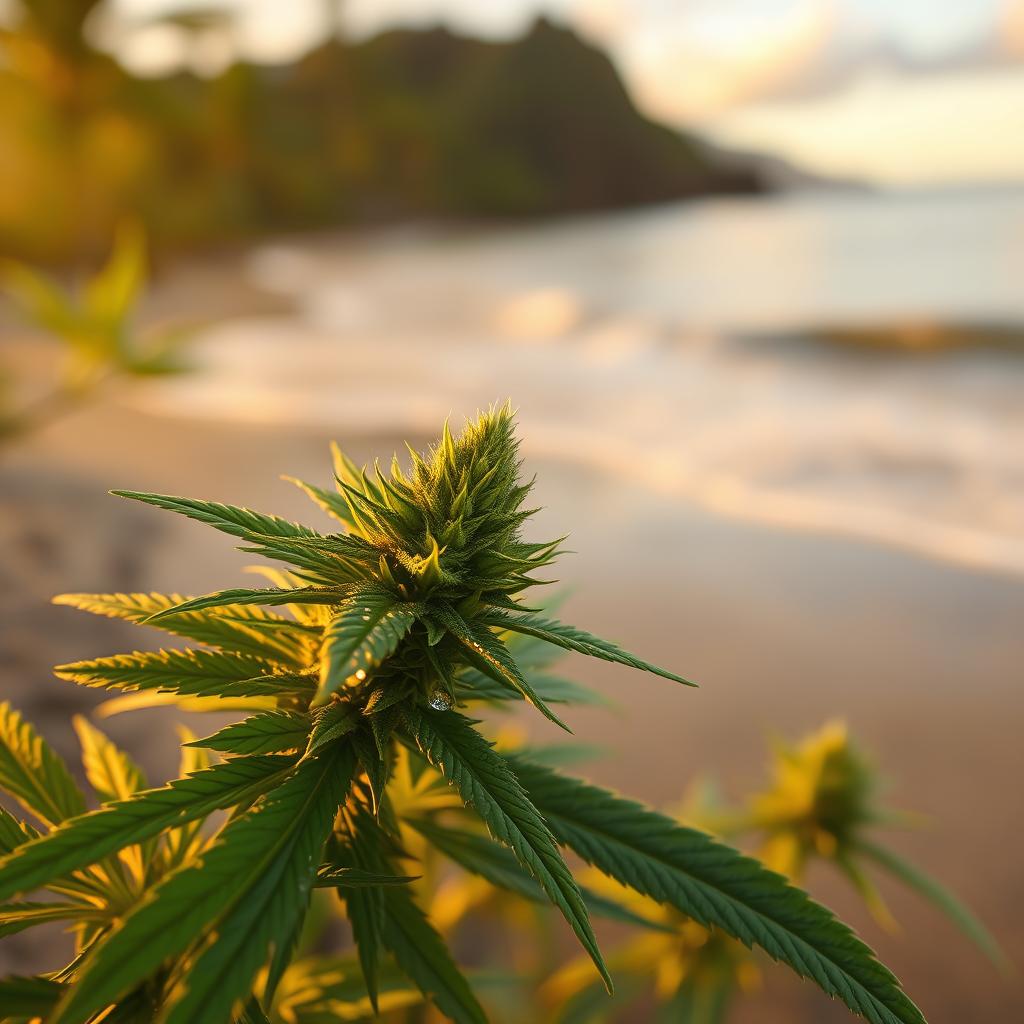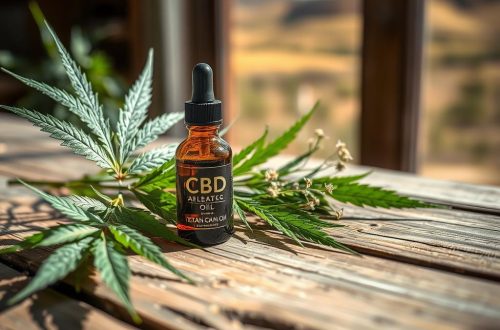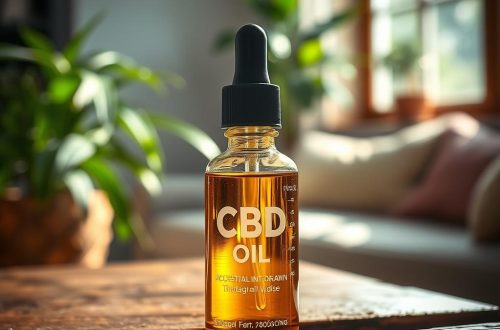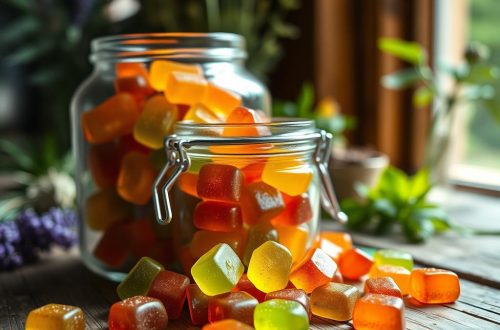Who does not want to take a few days off and unwind in the tropical islands of Hawaii with a packet of their favorite CBD gummies?
The answer will probably be ‘very few’. The idea of sitting near the ocean and watching the sun go down without worries with the help of the CBD oil is enticing. But before booking the flight or going out shopping, there is one important thing to consider: is CBD legal in Hawaii? Unfortunately, this is not an easy question to answer, as there are various conditions especially with consumables like the gummies. Although cannabidiol that is obtained from hemp is predominantly authorized, the state of Hawaii has its own laws that make it hard for the buyer to navigate. In this regard, the Hawaii Department of Health has set some guidelines that can turn the tropical dream of buying or selling CBD products – gummies in particular – into an unsolvable puzzle. The following comprehension is aimed at untangling the point of contention that confuses many people. It will give you the laws, the loopholes and what to expect when wishing to use CBD in Hawaii.
The Structure of Legality of CBD: Sovereign and Federal Law
In order to grasp the current reality, it is necessary to examine the law at both the federal and state levels. The first change took place at the federal level when the 2018 Farm Bill was enacted. The new clause legalizes the industrial hemp and its by-products, including the cannabidiol (CBD). Though, such a law was not enacted without an exception. This legal provision draws a division between the plants due to one specific substance tetrahydrocannabinol, better abbreviated as THC, and which is the ‘high’ producing substance found in cannabis. The ideal growth condition for a cannabis plant deemed to be legal hemp is when its percentage of THC exceeds no more than 0.3 percent of the dry weight. Anything exceeding such threshold is also known as marijuana and it is a controlled drug federally. Stemming from the 2018 Farm Bill, Hawaii enacted its own law known as Act 014 in 2020. This particular act put in place an industrial hemp program in the state and legalized the use of hemp and hemp products containing no more than 0.3% THC in the state. That may sound simple. However, as soon as that contention was made, another state’s institution interpretation of the law raised several challenges.
Key Issue: Stand of the State Department of Health
This is where the question of whether any regulation on CBD exists in Hawaii emerges. The regulation of the production of CBD, which goes for human consumption after it has been extracted is the responsibility of the Department of Health (DOH) in comparison to the Hawaii Department of Agriculture which regulated the hemp growth. The DOH complies with the requirements of the ADA Food and Drug Administration (FDA). The FDA is yet to approve the use of CBD as a food additive or a dietary supplement. As a result of such a federal posture, Hawaii’s DOH prohibits offering for sale food, beverage, and dietary supplements, which include CBD. Such a provision is intended to stop the circulation of many popular products, CBD drinks, CBD capsules, and, even more, CBD infused gummies. The DOH states that any food product with CBD in it will be adulterated and as such, illegal to make or sell in the state. This gives rise to an odd situation: this product is legal as a raw material (hemp-derived CBD) but it is not legal to add it to gummy bears and market it. Many consumers and retailers have found themselves operating over a fine legal dividing line as a result.
Can One Rent or is CBD Legal in Hawaii and Safely Worth Owning Without Reprisal?
This is the question that many tourists and people in the state are asking. The DOH doesn’t approve it, yet even in Hawaii where walk into any shop and notice gourmet CBD gummies being sold without remixes any CBD is different. Why? Because there is always a disparity between the law in paper and the reality in practice. Though it is within the purview of the DOH to sanction sellers that carry such commodities, compliance is not always the order of the day, especially for those retailers who still sell them in the belief that the items are safe because these are hemp-based and with THC content lower than 0.3%. It poses no significant threat to an ordinary person. They’re not going after consumers capable of protecting themselves for carrying or using ensuring CBD gummies below the threshold level of THC allowed. To that end, it can be said that even if at some level it is “illegal” to sell CBD candies of this type in the state of Hawaii, strictly speaking, it is not illegal in most instances to possess or use these candies when composed of the substance in question (i.e. hemp). Therefore, the issue of the law mostly rests on the shoulders of the seller rather than the buyer. This is an important difference making it easier to understand the problem, “is CBD legal in Hawaii?”
Consumers Guide Helpline: Self Protection While Consuming CBD Hawaii’s Market
Due to the lack of policies, you, as a person can more or less do whatever you want; yet, decent balance and ethics should guide you as well. There are a lot of items on the market right now but not the same in terms of their quality. If you want to protect yourself and enjoy a good product or service, you should make sure that the following requirements are considered before payment.
Vendors Random Test Results (Ending on is a Lab)
It is almost as significant as any other. Any good CBD manufacturer will submit their products to a trustworthy unbiased laboratory for evaluation. The laboratory economics generates results in the form of a document – Certificate of Analysis, in short COA. It gives an in-depth analysis of every component of the product.
Which features of the certificate should be inspected?
- Cannabis Quantity: It should include the amount of CBD and most importantly state that the THC content is 0.3% or less which is prohibited in Hawaii Law.
- Examination of Parasitic Organisms: Screens for toxic pesticides that could be used to grow the cannabis plants.
- Tests for Toxic Heavy Elements: Cannabinoids from both non-hemp and hemp-based plants can bio-accumulate toxic heavy elements in the surrounding environment.
- Biological Contamination: That checks the presence of any bacteria, yeasts or toxic micro-organisms in the product.
Frozen keywords and phrases remains unmodified: is CBD legal in Hawaii
If there is no easy access to the COAs of a company – typically by scanning a QR code from the packaging or from the company’s page – do not buy its product. Credibility in a brand often goes hand in hand with the degree of transparency.
Hemp Extraction
It tends to correlate that good hemp equals good cannabinoid. Preferably pick products made of such hemp that is grown in the United States. This is because hemp grown in the US is regulated in terms of agriculture thereby leading to quite an increased safety as well as quality of the product. The sourcing of the hemp is even more reassuring.
Unambiguous Labeling of Product
The label of the product needs to be in an explicit and simple way. It ought to contain the total amount of CBD in the package alongside the amount of CBD in every serving, for example, per one gummy. Lastly, stay away from products with unclear and unrealistic health-promoting assertions since promotional claims of the therapeutic benefit of CBD products have been prohibited by the FDA already.
Whether to Buy Online or in a Store in Hawaii
Please note that for the term ‘Hawaii’ there is a great chance which may occur to you – is CBD legal in Hawaii? If you’re in the market for CBD in Hawaii, there are two main avenues available to you: visiting a physical store or shopping from an online store. Both approaches have advantages and disadvantages. Patronizing a physical dispensary, vape or wellness shop, people get to touch the packaging and can even ask any possible question to the person in charge. Alas, one might not find a decent number of options, and the prices are likely to be above-average. Likewise, it must be remembered that you will be purchasing within the challenging legislation of the state. Buying online usually means having a much larger catalog of products at one’s disposal and most of the products come from the well-established brands in the country. Oftentimes, it is easier to locate COAs and product specifications for most items on the brand’s webpage. With the understanding that the purchase takes place with a provider from a different jurisdiction, it is possible to sidestep the issue of bill number of Hawaiian DOH. Many individuals appreciate this option as it is efficient, through which well-scrutinized goods can be ordered to the individual’s private address or hotel room without a hitch.
Flying to Hawaii with CBD Supplements
In the case where you are making a trip by air, and your destination is Hawaii, you may be wondering whether there is any danger in including your CBD gummies in your luggage. And the good news is, you can, according to the Travel Security Administration (TSA). Transport Security Administration’s official rules permit passengers to transport hemp-extracted CBDs (with no more than 0.3% THC) in their carry on and checked bags. Nevertheless, another wise practice will be to maintain the initial i.e. the manufacturer’s packaging of the CBD product. Even more better, is to have the Certificate of Analysis for that product either a printout or at least downloaded to a computer or phone. Chances are high that the TSA agents will not bug you about bringing such hemp derived candies too, but who can tell that there will be no misunderstanding that may cause a person more complications and more time than they should spend. The issue of the question, “Is CBD illegal; is CBD legal in Hawaii?” cuts across even to travel, and it is important to gauge and analyze the situation in advance just in case.
Is CBD legal in Hawaii? – The general legal position of CBD in Hawaii.
| Types of Product | Status | Key Concerns |
|---|---|---|
| Hemp derived CBD oils/Tinctures | Permitted | Easily accessible and also meets the statutory requirement of the state. |
| CBD Lotions and Creams | Performance | They cannot be consumed; thus, they are not considered part of the Department of Health food regulation. |
| CBD Edibles, for example, Excluding Gummies | Uncertain quasi-legal Status | It is illegal to trade such products as stated by the Department of Health in Hawaii, yet they are in the market. There is no punishment for carrying them with you. |
| CBD E cigarettes and Smoking Hemp | Permitted | Applicable within the provisions of the smoking laws. Available for sale only to persons aged 21 and above. |
| CBD Oil from Cannabis (THC is above 0.3%) | Prohibited (if Medical Card is Missing) | Obtained exclusively via the medical marijuana system in the state. |
Questions People Frequently Ask about CBD within Hawaii
Certainly, the intricacies of the regulation tend to engender more queries. Below are some of the most typical examples.
Can one tender for the purchase of CBD in the State of Hawaii without presenting a medical license?
No, you do not require a medical card to buy less than 0.3% THC contained hemp CBD products. However, in case you need to get higher content of THC (Marijuana CBD) Products, one should be eligible for and consult the medical cannabis review board in Hawaii and get registered with their medical cannabis program.
How old do you have to be to buy CBD in Hawaii?
Currently, you must be 21 years of age in order to legally acquire inhalational CBD products – this includes, vaporizers, and any smokable flowers or hemp derivatives. In the case of other goods such as oils, creams, and lotions, the minimum age is 18 years old, albeit even the retailers themselves may have their own 21 years of age restriction for sale of these products.
Does Hawaii Allow The Use Of Delta 8 THC?
This presents another dilemma. Delta 8 is psychoactive and comes from hemp. However, states have gone as far as to outlaw it. As of late 2025, Hawaii’s statute don’t expressly prohibit Delta 8 THC but it remains controversial as to its legality. It seems that many lawyers are urging people to be careful about the D8 products given that there is no distinct regulation.
Conclusion
Now, let’s address the question – is CBD legal in Hawaii? The best answer would be – to some extent, yes, it is. Because of the 2018 Farm Bill and state policies, any CBD products made from hemp and containing less than 0.3% THC can be owned and used legally in the state. CBD oils, including lotions, creams and vaping products can be purchased safely. But there is a predominant form of CBD – the edible kind and candy (CBD gummies), for these there is an unspoken grey zone. The Hawaii Department of Health has a rule against selling them, but they exist on store shelves and the internet so often that you still find yourself buying them. People are allowed to have them in their possession without any concern for breaking the law. It’s very important that you know what you are buying especially weed. When purchasing products, make sure it’s convenient enough to find the third party lab reports showing the THC levels and the purity of the product. Such practices are easily acquired and held on to in the beautiful Hawaii allowing one to enjoy the necessity of CBD.






